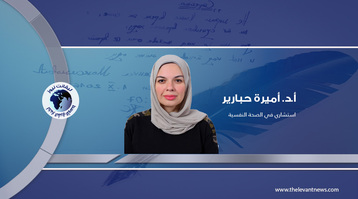-
A ticking timebomb in IS Al-Hol camp northeast Syria

Last Friday 27th February, the Supreme Court in the UK had rejected Shamima Begum's appeal to return back to the UK in order to fight for her British citizenship. Begum is well-known as an ISIS bride and had received the Court of Appeal last July 2020, ruled that they should allow her to enter the UK, but the Home Office had appealed against the decision to the Supreme Court to reconsider its decision. The president of the Supreme Court said that Shamima Begum's return to the UK "would create significant national security risks".
Shamima left London and joined the so-called Islamic State in Syria when she was 15. Like thousands of wives of ISIS fighters, she is living in Al-Hol camp in northeast Syria under the Kurdish self-administration autonomous. Moreover, more than 60,000 ISIS families, women, and children are living in the Al-Hol camp including 20,000 Syrians and 30,000 from Iraq after the collapse of the ISIS Caliphate by Kurdish forces in 2019. Whereas, in the foreign section of the camp there are about 10,000 ISIS families from 57 countries including the UK and EU citizens. This section considers like a "small Islamic State" run by highly extremist ISIS wives where children grow in radical environment.
Besides that, there are nearly 10 thousand ISIS foreign fighters in prisons since the collapse of IS (Islamic state) caliphate, and the EU countries refused to repatriate their nationals including children who were born there, despite the human rights observatory and experts warnings about the risks of inaction in this case. Added to that, the ISIS refugee Al-Hol camp expected to become a "ticking timebomb" that can explode at any time. For example, recently in this camp many crimes have been committed, and the camp turned into a "mini ISIS state". According to the Syrian Observatory of Human Rights, only in January, 13 murder crimes were committed by Islamic State members inside the camp.
The Kurdish authorities in the self-governing region have been, repeatedly, calling the United Nation Council and warning the European Union capitals to find a solution to this serious case that can be considered as an international challenge. However, the foreign countries' response to the Department of Foreign Relations of the Autonomous Administration of North and East Syria was quite weak. For instance, only France and Ukraine were handed over a few orphaned ISIS children in recent months whereas, most of the EU countries are still ignoring the call of Kurdish authorities.
Consequently, with the rise of the Islamic State in different areas in Syria’s recent months, the risk of terrorist attacks can become a real fact as ISIS fighters and their families are attempting to escape from the camp. Added to that, the Turkish attacks and threats against the Syrian Democratic Forces can be another factor to complicate the situation in favour of the so-called Islamic State.
Zara Saleh
You May Also Like
Popular Posts
Caricature
Syrians' concerns now
- December 10, 2024
Syrians' concerns now #Syria
#Bashar_al-Assad
#Liberation_of_Syria
#Syrians
#Future_of_Syria
#Levant_News

opinion
Report
ads
Newsletter
Subscribe to our mailing list to get the new updates!





















